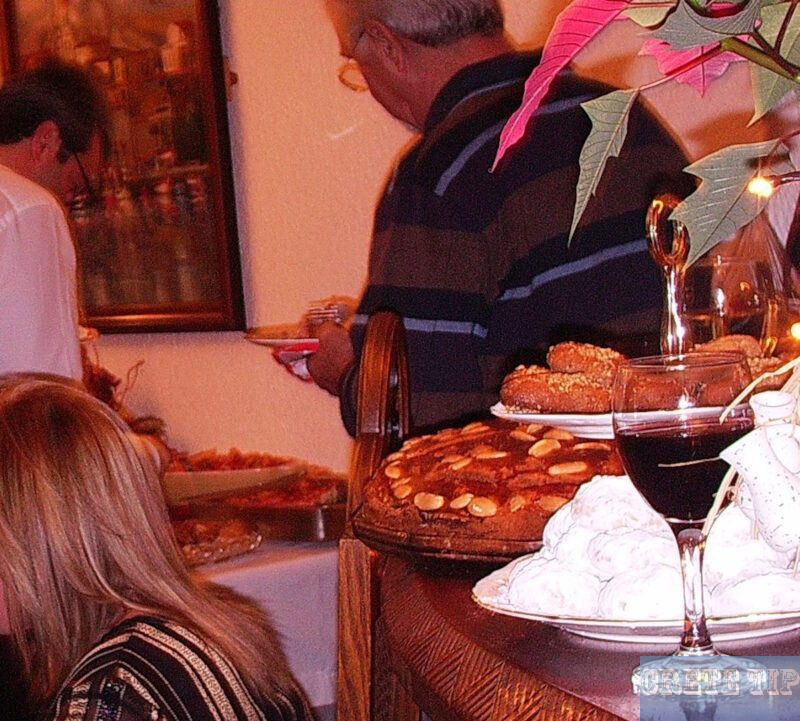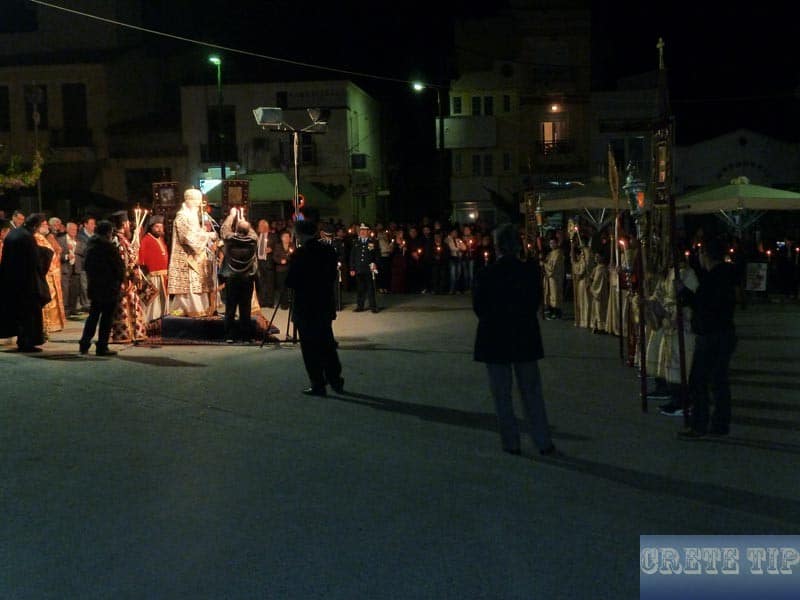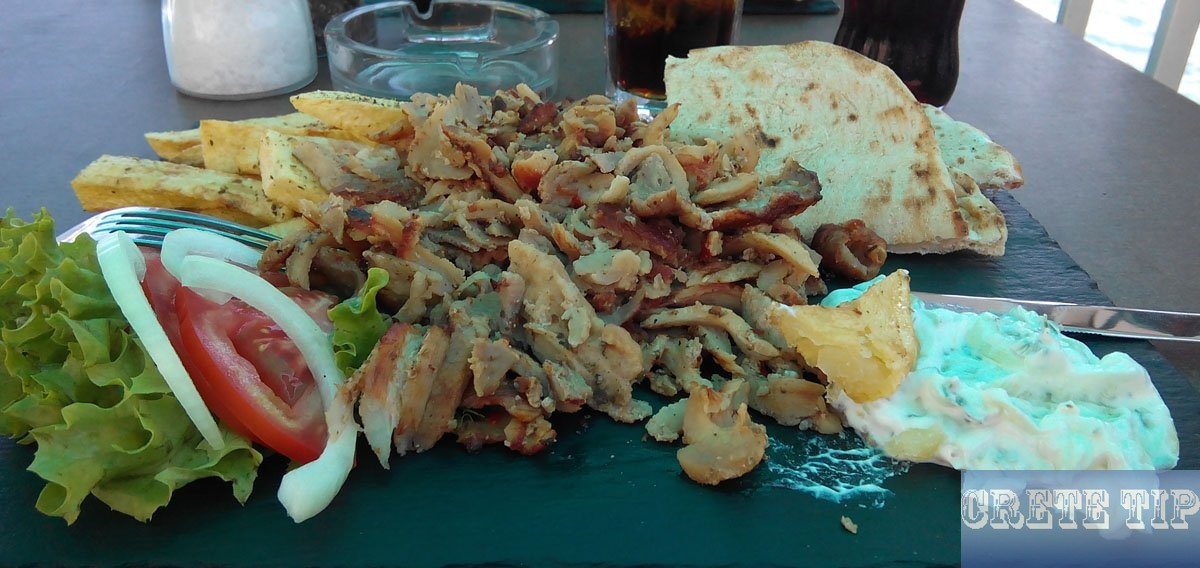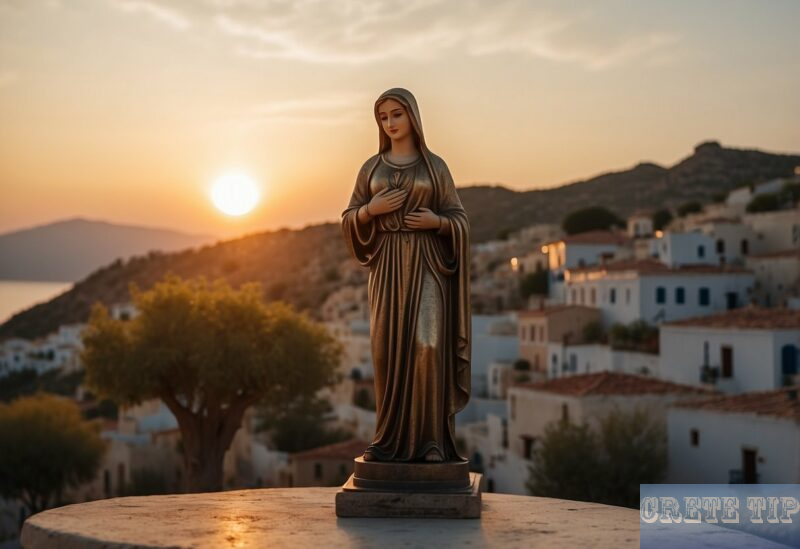How is Epiphany (Three Kings’ Day on 6 January) celebrated in Greece? A festive look at Greek traditions.

Epiphany in Greece and Crete
Table of Contents
Epiphany, also known as Three Kings’ Day, is a special holiday celebrated in Greece on 6 January. It marks the end of the Christmas season and holds deep religious significance for Greek Orthodox Christians.
Greeks celebrate Epiphany with unique traditions, including the blessing of waters and a swimming competition to retrieve a cross thrown into the sea. These customs honour the baptism of Jesus in the River Jordan and bring communities together in joyful celebration.
The day is filled with festive foods, church services, and family gatherings. Children often receive small gifts, continuing the spirit of giving from the Christmas season. Epiphany in Greece is a time of renewal and spiritual reflection, blending ancient traditions with modern observances.
Historical Background of Epiphany in Greece
Epiphany, known as ‘Theophania’ in Greece, has deep roots in the country’s religious and cultural traditions. This Christian holiday falls on 6 January each year and marks the baptism of Jesus in the Jordan River.
The celebration dates back to ancient times when it was linked to the winter solstice and the Greek god Dionysus. As Christianity spread, the holiday took on new meaning and became associated with Jesus’s baptism.
In Greek Orthodox tradition, Epiphany is one of the most important feast days. It’s seen as a time when Christ revealed his divine nature to the world. This belief has shaped the way Greeks celebrate the holiday for centuries.
The holiday has been observed in Greece since the early days of Christianity. Over time, unique customs developed in different regions of the country. These traditions blend religious ritual with local folklore.
One key aspect of Greek Epiphany celebrations is the blessing of the waters. This custom likely has its roots in ancient Greek water worship practices. Today, it’s a central part of the holiday’s religious observances.
Greek Epiphany celebrations also include special foods, songs, and rituals. Many of these customs have been passed down through generations, keeping the holiday’s rich history alive in modern times.
Religious Significance of the Day
Epiphany holds deep religious meaning in Greece. It marks the baptism of Jesus Christ in the Jordan River by John the Baptist. This event is seen as a revelation of Jesus as the Son of God.
Greeks call this day ‘Theophania’, which means ‘show God’ in Greek. It’s a time when they believe the Holy Spirit came down upon Jesus in the form of a dove.
The day is also linked to the visit of the Three Wise Men to baby Jesus. This story is less central in Greek Orthodox traditions compared to Western Christianity.
On Epiphany, Greek Orthodox priests bless the waters. This ritual is meant to cleanse the world of evil spirits and bring good luck for the new year.
Many Greeks see this day as a chance to renew their faith. They attend special church services and take part in blessing ceremonies.
Some key religious elements of Epiphany in Greece include:
- Blessing of homes with holy water
- Diving for a cross in lakes or the sea
- Special church services
- Processions with icons and crosses
Customs and Traditions

Epiphany in Greece is marked by unique customs that blend religious significance with local culture. These traditions centre around water and blessings, creating a festive atmosphere across the country.
Blessing of the Waters
On Epiphany morning, Greek Orthodox priests lead a special service to bless water bodies. This ritual, known as the Great Blessing of Waters, takes place near seas, lakes, and rivers. Priests throw a cross into the water, symbolising Jesus’s baptism in the River Jordan.
The blessed water is thought to have healing powers. Many Greeks collect it in bottles to use throughout the year. Some even sprinkle it around their homes for protection.
Churches also bless holy water on this day. Parishioners often take some home to drink or use for blessings.
The Holy Cross Dive
After the blessing, young men dive into the cold water to retrieve the cross. This tradition is popular in coastal towns and islands. The person who finds the cross is said to have good luck for the year.
Large crowds gather to watch the dive. It’s a exciting event, with swimmers braving chilly waters. The winner is often celebrated as a local hero.
In some places, women have started taking part in this custom too. This shows how traditions can change over time.
Local Festivities
Each region in Greece adds its own flair to Epiphany celebrations. Many towns host parades with people dressed as the Three Kings. Children often take part, carrying lanterns or stars.
Special foods are prepared for the occasion. In some areas, people bake Vasilopita, a cake with a hidden coin. Finding the coin is said to bring good fortune.
Folk dances and music are common in village squares. These joyful gatherings bring communities together. Some places even recreate scenes from the Nativity story.
Boat blessings are important in fishing communities. Priests visit harbours to bless fishing vessels for a safe and bountiful year ahead.
Culinary Delights of Epiphany

Greek Epiphany celebrations feature several tasty treats. These special foods bring families together and add sweetness to the holiday.
Vasilopita
Vasilopita is a round cake or sweet bread eaten on New Year’s Day and Epiphany. Bakers hide a coin inside before baking. The person who finds the coin in their slice is said to have good luck for the year.
Families gather to cut the Vasilopita at midnight on New Year’s Eve. The first slice goes to Christ, the second to the house, and the rest to family members from oldest to youngest.
The cake is often flavoured with orange zest and topped with powdered sugar. Some versions have nuts or raisins mixed in. The golden crust and fluffy inside make it a beloved holiday treat.
Loukoumades
These small, deep-fried dough balls are a popular Epiphany snack. They’re crispy on the outside and soft inside. Cooks drizzle them with honey syrup and sprinkle cinnamon on top.
Loukoumades are often served warm at holiday gatherings. Their sweet smell fills homes as families make them together. Some shops offer them as a special treat during the Epiphany season.
Greeks have enjoyed these doughnuts for centuries. Ancient Olympians got them as prizes. Today, they’re a tasty part of Epiphany celebrations across the country.
Phyllo Pastry Pies
Flaky phyllo pies are a savoury option for Epiphany feasts. Cooks layer thin sheets of pastry with fillings like cheese, spinach, or meat. The pies are then baked until golden brown.
Popular varieties include spanakopita (spinach pie) and tyropita (cheese pie). These pies are often cut into small pieces for easy sharing at gatherings. Their crisp texture and rich flavours make them a hit with guests.
Making phyllo pies is a skilled task. Many families have secret recipes passed down through generations. The pies add a hearty touch to Epiphany meals, balancing out the sweet treats.
Regional Variations of Celebration
Greek Epiphany traditions vary across different regions. Each area has its own unique customs and rituals to mark this important religious holiday.
Crete
In Crete, the Epiphany blessing of the waters takes on a distinct local flair. Brave young men dive into the cold sea to retrieve a cross thrown by the priest. The lucky retriever is said to have good fortune for the year.
Cretan villages also host special feasts. Families gather to enjoy traditional dishes like kalitsounia, small cheese pies, and xerotigana, crispy fried dough strips drizzled with honey.
Many Cretans attend church services on Epiphany morning. They then join processions through town streets, singing hymns and carrying icons.
The Cyclades
The Cyclades islands celebrate Epiphany with their own twist. On Mykonos, locals bake a special bread called vasilopita. A coin is hidden inside, and whoever finds it in their slice is thought to have good luck.
Syros sees colourful boat races on Epiphany. Decorated caiques (traditional fishing boats) compete in the harbour, cheered on by crowds.
Naxos holds a unique “dance of the waters” ritual. Priests bless large clay pots of water, which are then used to sprinkle homes and businesses for good fortune.
Epirus
In Epirus, northwestern Greece, Epiphany customs blend Christian and pagan traditions. Villages in the Zagori region perform an ancient ritual called “kolenda”.
Groups of men go door-to-door singing carols and collecting treats. They wear bells and animal skins, believed to ward off evil spirits.
The town of Ioannina has a special Epiphany tradition. A priest throws a cross into Lake Pamvotis. Local men swim to retrieve it, braving the icy waters.
Macedonia
Macedonia’s Epiphany celebrations focus on purification. In many towns, young men plunge into rivers or lakes to “cleanse” themselves for the new year.
The city of Kastoria holds a grand procession. Priests carry icons through the streets, blessing homes and shops along the way.
In some Macedonian villages, maidens leave offerings of bread and honey by springs or wells. This custom is thought to ensure good health and fertility in the coming year.
Music and Dance

Greeks celebrate Epiphany with joyful music and lively dances. Traditional songs called “kalanda” are sung by children who go door-to-door on the eve of the holiday. These carols tell the story of Christ’s baptism and the visit of the Three Kings.
Folk dances play a big role in the festivities too. People gather in town squares and at community centres to perform regional dances. Some popular ones include the hasapiko, kalamatiano, and syrtos.
Many towns host special concerts featuring Byzantine chants and Greek Orthodox hymns. These musical events often take place in churches or outdoor venues. They help create a festive atmosphere for the holiday.
In coastal areas, brass bands sometimes lead processions to the waterfront for the blessing of the waters ceremony. The lively music adds to the excitement as people watch priests toss crosses into the sea.
After religious services, families and friends often gather for meals with music and dancing. It’s a time for Greeks to come together and enjoy their rich cultural traditions through song and movement.
Home Decorations and Symbolism
Greek homes take on a festive look for Epiphany. Families often hang wreaths made of basil on their front doors. Basil is seen as a sacred herb that wards off evil spirits.
Inside, many Greeks display a special Epiphany cake called a vasilopita. This sweet bread has a coin hidden inside. Whoever finds the coin in their slice is said to have good luck for the year.
Small wooden boats are another common decoration. These symbolise St Nicholas, the patron saint of sailors. Some families place them near their Christmas trees or on windowsills.
Candles play a big role in Epiphany decor. Greeks light them to represent the light of Christ. They may place candles in windows or use them to create centrepieces.
Many homes feature icons of the three wise men. These images show the kings presenting their gifts to baby Jesus. Families might display them on mantels or shelves.
Blue and white colours often appear in Epiphany decorations. These match the Greek flag and represent the sky and sea. Households may use blue and white tablecloths or hang ribbons in these shades.
Epiphany in the Greek Diaspora

Greek communities around the world keep Epiphany traditions alive. They celebrate on 6 January, just like in Greece.
Many Greek Orthodox churches hold special services. Priests bless water and sprinkle it on churchgoers. This reminds people of Jesus’s baptism.
Some places have outdoor ceremonies near bodies of water. Brave swimmers dive in to retrieve a cross thrown by the priest. It’s seen as good luck to catch it.
Greek families often gather for a festive meal on Epiphany. Traditional foods might include:
- Vasilopita (New Year’s cake)
- Melomakarona (honey cookies)
- Kourabiedes (almond biscuits)
In some areas, children go carolling from house to house. They sing special Epiphany songs and receive sweets or small gifts.
Greek schools and community centres may put on plays about the Three Kings. These help teach younger generations about the holiday’s meaning.
While customs can vary, the spirit of Epiphany remains strong in Greek communities worldwide. It’s a time to come together and celebrate their faith and heritage.
Frequently Asked Questions
Epiphany celebrations in Greece involve unique traditions and customs. The holiday holds special significance in Greek Orthodox culture, with various activities and foods marking the occasion.
What traditions are followed during the celebration of Epiphany in Greece?
In Greece, Epiphany is known as ‘Theophania’ or ‘Fota’. The main tradition is the blessing of the waters. Priests toss a cross into the sea, rivers, or lakes. Young men dive to retrieve it, believing it brings good luck.
Churches hold special services on this day. Many homes are blessed with holy water. People sprinkle it around their houses to ward off evil spirits.
Could you describe the typical customs surrounding the Feast of the Three Kings in Greece?
Greeks don’t focus on the Three Kings like some other countries. Instead, they celebrate Christ’s baptism in the Jordan River. This event is seen as the revelation of the Holy Trinity.
Carolling is common on Epiphany Eve. Children go door-to-door singing traditional songs. They often receive sweets or small gifts in return.
What special activities take place in Greece on Epiphany?
The most famous activity is the cross retrieval. In coastal towns, this happens in the sea. Inland areas use lakes or rivers. It’s a big event with many spectators.
Some places hold parades or processions. Boats are often decorated. In some regions, people dress up in traditional costumes.
Is there a particular significance to the way Epiphany is observed by the Greek Orthodox Church?
For Greek Orthodox Christians, Epiphany marks the baptism of Jesus. It’s seen as a manifestation of Christ’s divinity. The blessing of waters symbolises the sanctification of creation.
This day is also linked to the banishing of ‘kallikantzaroi’. These are mischievous spirits thought to appear during the 12 days of Christmas.
How do the Greek celebrations of Epiphany differ from those in other countries?
Greek celebrations focus on water blessings and Christ’s baptism. This differs from Western traditions that emphasise the visit of the Magi.
The cross diving ceremony is unique to Greece and some neighbouring countries. It’s not typically seen in Western Epiphany celebrations.
Are there any foods or dishes traditionally associated with the Greek observance of Epiphany?
‘Fotokoliva’ is a special Epiphany treat. It’s made from boiled wheat, pomegranate seeds, raisins, and nuts. Some areas make a special bread called ‘Vasilopita’.
In some regions, people eat fried dough balls called ‘loukoumades’. These are often drizzled with honey and cinnamon.




